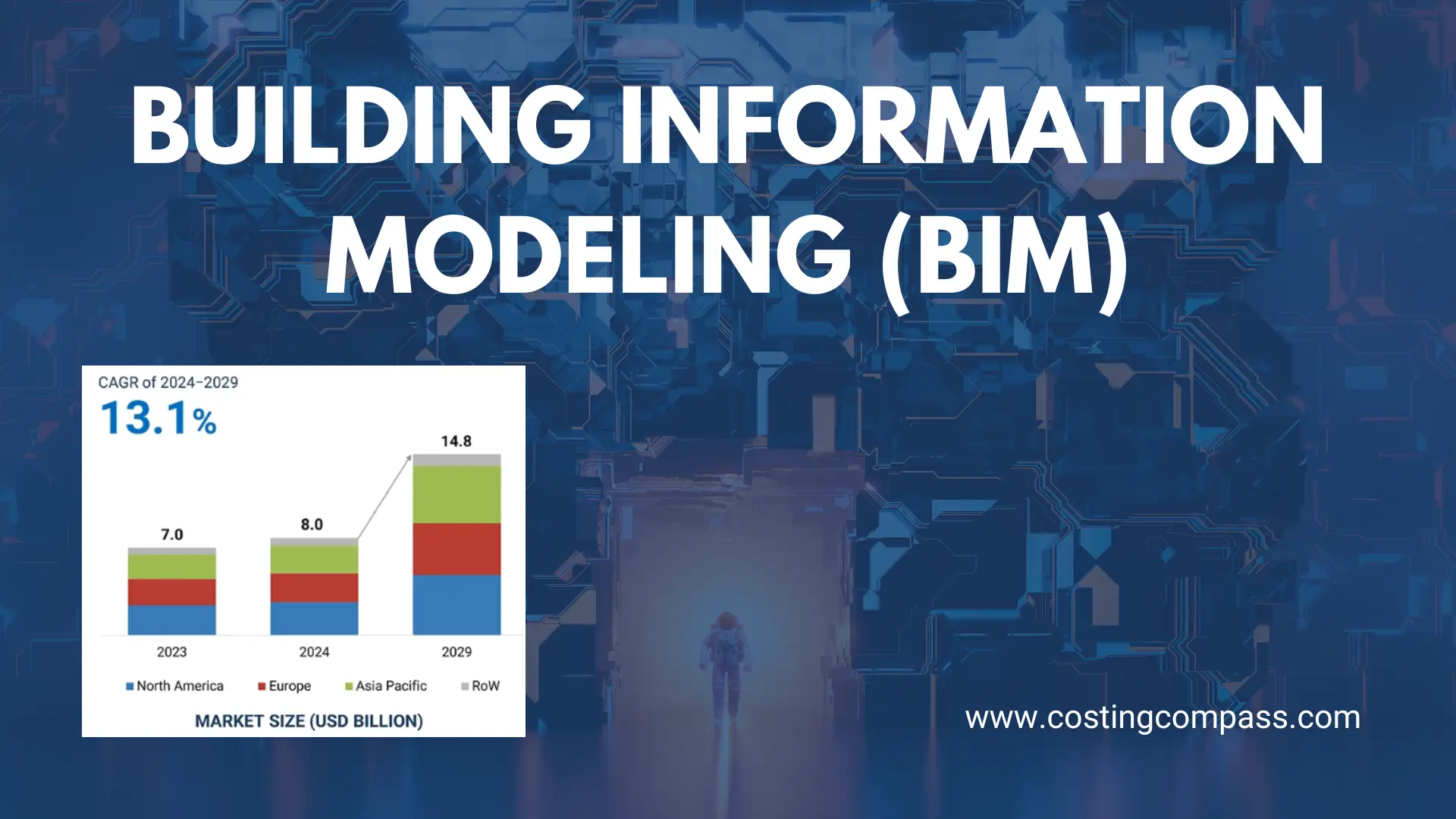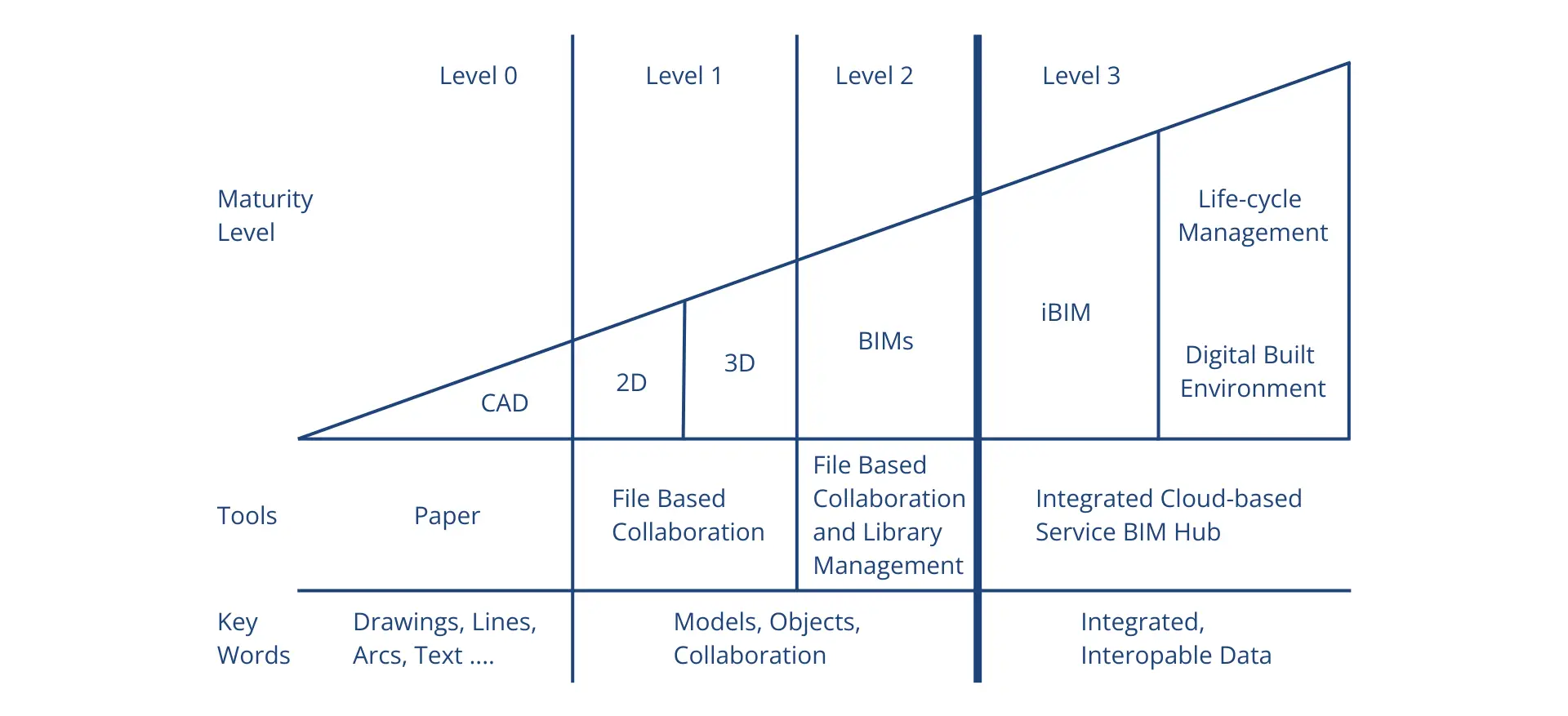
Building Information Modeling (BIM) is revolutionizing the construction industry by enhancing efficiency, accuracy, and collaboration. In the domain of cost consultancy, BIM is redefining the traditional practices of quantity surveying by integrating advanced data analytics, automation, and real-time cost control mechanisms. According to the NBS Digital Construction Report 2023, 70% of construction professionals have adopted BIM, reflecting its pivotal role in the industry. This blog explores how BIM is transforming cost consultancy and shaping the future of quantity surveying.

Traditionally, quantity surveyors relied on 2D drawings, manual take-offs, and spreadsheets to prepare cost estimates, valuations, and financial reports. However, BIM offers a paradigm shift by introducing 3D parametric modeling, real-time cost tracking, and automated quantity take-offs (QTO). The integration of BIM with cost consultancy facilitates:
Improved Accuracy: BIM models contain precise geometric and non-geometric data, reducing errors and discrepancies in quantity take-offs and cost estimation.
Automation in Cost Estimation: Automated QTOs directly extract material quantities from the BIM model, eliminating manual take-off processes and enhancing efficiency.
Real-time Cost Monitoring: With BIM-integrated cost management tools, consultants can track budget variations in real-time and make proactive adjustments.
Enhanced Collaboration: BIM fosters a data-driven approach where cost consultants, designers, and contractors can collaborate effectively, reducing conflicts and cost overruns.
Several BIM-enabled software solutions are available to support cost consultancy, including:
Glodon Cubicost: A specialized BIM-based quantity take-off software that automates QTO processes with high accuracy.
Autodesk Revit + CostX: Integrates Revit’s parametric modeling capabilities with CostX’s cost estimation functionalities for real-time cost management.
Navisworks + 5D BIM: Enables clash detection, cost visualization, and dynamic cost tracking.
Trimble Vico Office: Provides model-based estimating, scheduling, and cash flow forecasting.
5D BIM extends traditional BIM functionalities by integrating cost data, allowing dynamic cost estimation throughout the project lifecycle. Key benefits include:
Early-stage Cost Planning: Cost consultants can generate preliminary estimates based on conceptual models, improving budget forecasting accuracy.
Automated Cost Adjustments: Changes in design parameters automatically update cost estimates, ensuring real-time financial control.
Lifecycle Cost Analysis: Incorporates operational and maintenance costs, providing insights into the total cost of ownership (TCO) of built assets.
Despite its benefits, BIM adoption in cost consultancy faces several challenges:
Industry Resistance: Many firms still rely on traditional methods due to resistance to technological change.
High Implementation Costs: Investing in BIM software and training requires significant financial resources.
Interoperability Issues: Ensuring seamless integration between BIM models and cost management software remains a challenge.
Data Management Complexity: Handling large volumes of cost and material data requires robust data governance frameworks.
The future of BIM-based cost consultancy will be shaped by emerging technologies, including:
AI and Machine Learning: Predictive analytics will enhance cost forecasting accuracy and risk assessment.
Blockchain in Cost Management: Smart contracts and decentralized cost data management will enhance transparency and accountability.
Cloud-Based BIM Collaboration: Remote access to BIM models will streamline cost consultancy workflows and decision-making.
Sustainability and Green BIM: BIM-driven sustainability analysis will support cost-effective and eco-friendly construction solutions.
BIM is transforming cost consultancy by driving automation, accuracy, and collaboration in quantity surveying. As technology continues to advance, cost consultants must embrace BIM to stay competitive and deliver value-driven solutions in the construction industry. The integration of 5D BIM, AI, and cloud-based tools will further redefine the future of cost consultancy, ensuring efficiency and cost-effectiveness across project lifecycles.

Summarize your business so the visitor can learn about your offerings from any page on your website.
© 2025 Costing Compass